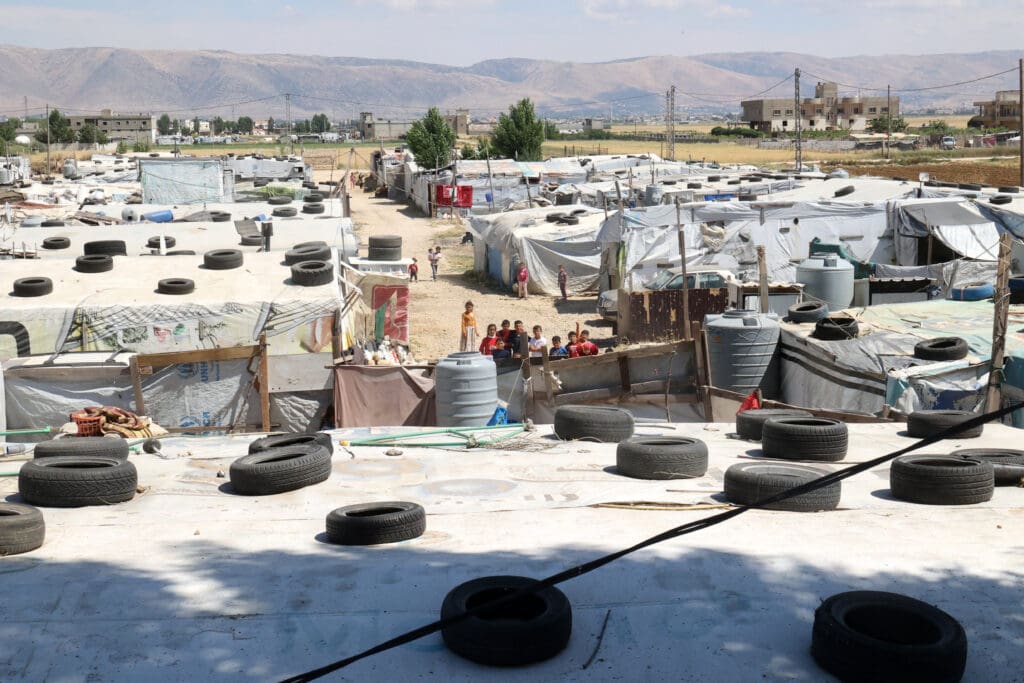In late May of this year, the European Union and other international donors pledged €7.5 billion ($8 billion) in grants and loans to support millions of Syrians displaced within and beyond the country’s borders by a devastating 13-year civil war. The seemingly vast sum pledged at the Brussels conference on “Supporting the future of Syria and the region” continued a trend of declining aid over recent years, and even the money pledged in the past has not always been fully delivered. This points to donor fatigue and shifting priorities, despite the massive ongoing need. Furthermore, by mainly outsourcing its role in the Syrian refugee crisis to host countries, the EU is undermining its ability to address conflict-driven migration and to protect the basic rights and safety of millions of Syrians. Despite the many billions of euros that have been spent in host countries, the evolving needs continue to challenge the effectiveness of European aid.
The war in Syria has profoundly affected the region—particularly neighboring Türkiye and Lebanon, which have borne the brunt of the resulting refugee crisis. Despite massive differences in their respective GDPs, populations, and territories, both countries face similar challenges in managing the influx of displaced persons. Türkiye hosts over 3.6 million Syrian refugees registered under temporary protection status—the largest Syrian refugee population in any country. Lebanon, a small country dwarfed by Türkiye and Syria, has hosted an estimated 1.5 million Syrians among its own population of only 5.5 million, which is the highest proportion of refugees per capita in the world. To make matters worse, in Lebanon, just over half of displaced Syrians are registered with the United Nations’ High Commissioner for Refugees (UNHCR), and most lack any formal residency documents. Since the influx of Syrians began, there have been limited policies aimed at integrating refugees (particularly as a durable solution), despite programming intended to enhance social cohesion. Both countries have also seen growing calls for Syrian refugees’ repatriation. These policy gaps overlook the complexities of the Syrian conflict and leave refugees living in uncertainty.
Reports from both Türkiye and Lebanon indicate that refugees who return to Syria face gross human rights abuses, including arbitrary arrest, detention, and even torture. Thus, despite chronic mistreatment in host countries—including discrimination and hate crimes, social and economic deprivation, bureaucratic hurdles, and escalating anti-refugee sentiments—and despite many wanting to return home, many refugees prefer to remain in their host country for the time being.
Short-Term Solutions to Long-Term Challenges
In 2016, the European Council and Ankara reached a migration deal to stop the flow of irregular migrants to Europe by supporting their settlement on Turkish soil. Türkiye has received almost €10 billion ($10.8 billion) in EU assistance to this end since 2011, which has been vital in providing Syrians with legal and social protections, healthcare, education, socio-economic support, and cash transfers, as well as in supporting municipal infrastructure.
Yet the deal has been criticized for its perceived focus on keeping the EU’s borders safe without adequately contributing to long-term solutions in employment, education, or social integration. Additionally, the policy only provides temporary relief rather than offering structural, sustainable solutions for integration and socio-economic self-reliance. Critics argue that the EU’s role as a financial actor first and foremost has led to isolated efforts, rather than a comprehensive plan, for migrants. By failing to push for inclusive policies, the bloc has implicitly supported the temporary status Türkiye has offered refugees.
This approach has also been linked to rhetoric by politicians around returns and fed into the bureaucratic and domestic security hurdles that Syrians face. Türkiye has continued to seek to prevent the refugee crisis from escalating into a social one. During recent election campaigns, the politicization of the Syrian migrant issue and calls for their return have exacerbated these challenges. Institutions in Türkiye also face challenges in ensuring refugees’ human rights and dignity, which contribute to the difficulty of integrating refugees into social and economic life. Violence and abuse between host communities and Syrian refugees often go unreported, and tensions persist.
Similarly, EU deals with Lebanon such as the compact signed in 2016 have failed to deliver, particularly when it comes to promoting “self-reliance” among refugees by providing employment opportunities and regularizing their status. Roughly 95% of Syrians in Lebanon were reported to be working informally in 2021, while only 20% held legal residency last year. Since the introduction of the compact, an unprecedented economic crisis, restrictive policies, decreasing aid, and increased securitization and crackdowns by Lebanese security forces have pushed many more Syrian refugees to attempt dangerous journeys to Europe via irregular migration routes.
The EU response was to announce a €1 billion ($1.08 billion) package for Lebanon in 2024, the bulk of which is meant to stabilize the country’s collapsing economy and support basic services including health, education, and social protection. The deal also includes support for border and migration control aimed at impeding the migration of Syrian refugees to Europe. Yet it does little to address the economic or structural reforms needed to support Lebanon through its ongoing financial and economic crisis.
Without targeting the root causes of this crisis, the deal is unlikely to provide long-term, sustainable solutions for refugees and their host communities. Although Lebanon has received about €3 billion in assistance since the onset of the refugee crisis, including for education, health, protection, livelihoods, and local development, roughly 90% of Syrians in Lebanon were living in extreme poverty in 2023. Increasing anti-refugee rhetoric by the government and political parties has also undermined social stability.
Indeed, aimed primarily at securing the EU’s borders and maintaining its internal political balance, these deals have given host countries increased leverage, significantly diminishing the EU’s ability to push for better policies towards Syrian refugees. This has created a situation in which millions of Syrians have become mere bargaining chips in negotiations between the EU and host countries, namely Türkiye, Lebanon, and Jordan.
Who Is Actually Benefiting?
A key metric of whether this aid is effective must be whether it reaches the people who need it, or whether it gets stuck in governmental or non-governmental organizations’ bureaucracies. In Türkiye and Lebanon, aid delivery is primarily split between governments and international organizations, including EU member state development institutions, UN agencies, and international financial institutions. However, EU auditors have raised concerns about the impact and sustainability of such funding. A lack of transparency has cast doubt over the aid’s effectiveness, which is also limited by the exclusion of local actors from aid-related negotiations.
Meanwhile, a considerable amount of the funds also goes to covering the administrative costs of organizations working in host countries. This problem is exacerbated by organizations bringing in experts from other, predominantly Western, countries to run projects, which drives up costs and excludes local professionals. Despite some support for local organizations, limited funding reaches those who are the most familiar with the context on the ground. There is also a yawning pay gap between local and expatriate aid workers, skewing the balance of power and curbing the potential impact of these funds on civil society development.
With millions of Syrian refugees’ livelihoods at stake, continued support and aid from the EU are vital. However, this aid must be coupled with conditionalities and comprehensive reforms to ensure that it is sustainable and effective over the long term. In Lebanon, one key condition among many should be ensuring the protection of refugees by facilitating their legal residency. In both Lebanon and Türkiye, efforts should also prioritize Syrian refugees’ inclusion in the formal labor market. Ultimately, any aid deals should be contingent on ensuring the protection of refugees’ rights so they can lead dignified and safe lives in their host countries.



